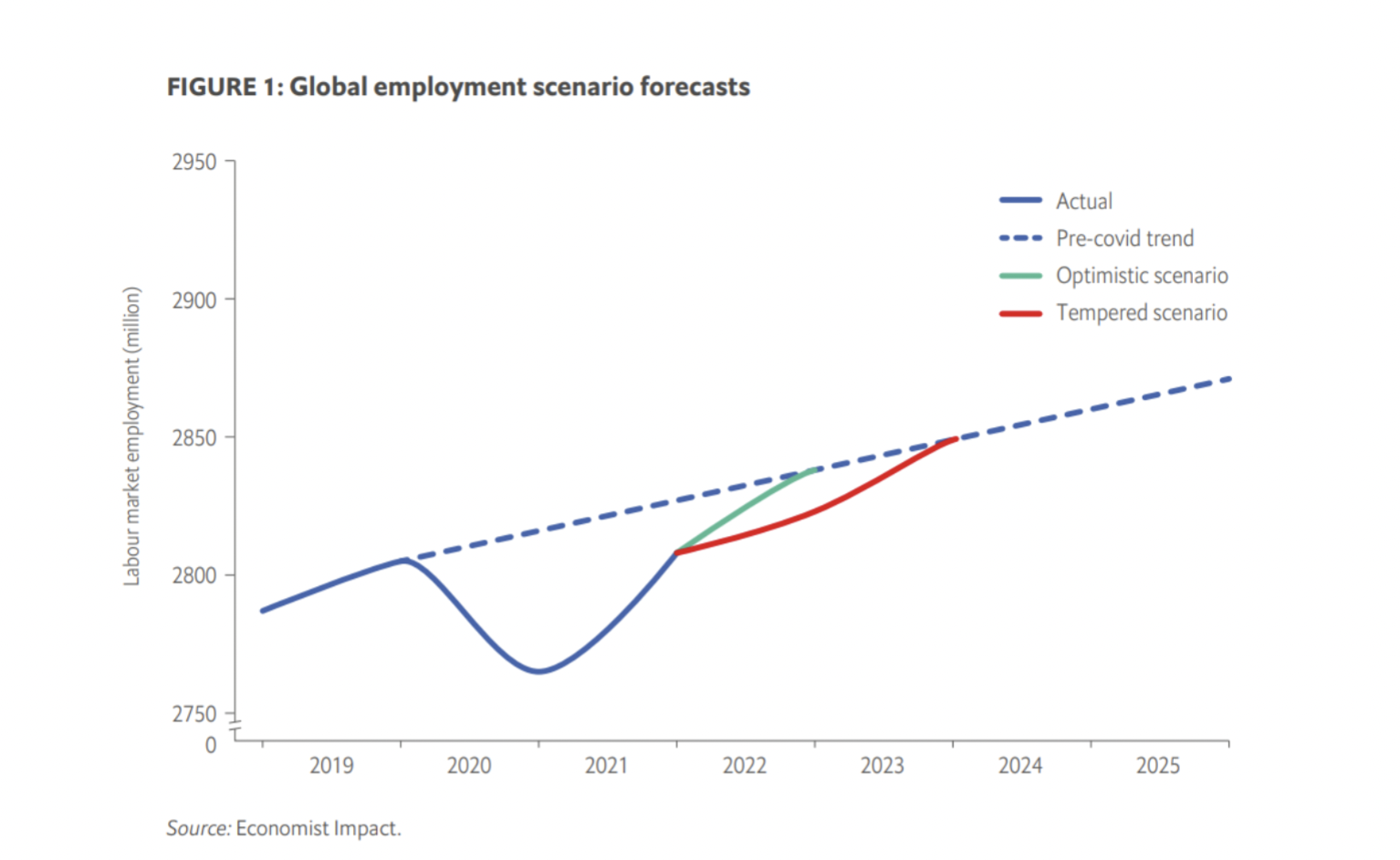New research from the Adecco Group and Economist Impact suggests that global employment will fully recover in 2023, with regional differences to be expected.
This article was originally published on The Adecco Group.

Economist Impact, supported by The Adecco Group, developed employment forecasts that offer a new way of understanding the labour market outlook at a global and regional level. These forecasts can be used by organisations to help chart a proactive path forwards to tackle talent scarcity, highlighting the importance of scenario planning in times of uncertainty.
The number of people employed globally has already returned to 2019 pre-pandemic levels. It is valuable, however, to consider where employment would have been, had Covid-19 not happened. According to this study, global employment would have stood at 2.83bn in 2021 had the pandemic not occurred, showing an ongoing gap of 0.7% to the actual number of people employed.
The war in Ukraine, interest rates, inflation and food prices are just some of the factors impacting labour market forecasts. These factors lead us to forecast that global employment will fully recover to a pre-Covid trend in 2023.
The Adecco Group’s CFO and Chief Economist, Coram Williams, said: “When I speak with business leaders, the labour shortage is inevitably their uppermost concern. They know that big-picture demographic trends are not in their favour, and their first question is as fundamental as it is urgent: Will there be enough people, with the necessary skills, to get my organisation’s work done?”
John Ferguson, Head of Economist Impact's Globalisation, Trade and Finance practice, said: “At a global level our analysis expects the labour market to fully recover from the impact of Covid-19 by next year. When we dive deeper, our unique scenario analysis highlights the myriad factors that impact this recovery at a regional level.
Ongoing uncertainty is most acutely highlighted in our European analysis. Before the war in Ukraine, employment in Europe was expected to recover in 2022. Now, taking into account the impact of the war, that recovery may occur in 2023 in an optimistic scenario, with a downside scenario forecasting recovery in 2024 at the earliest.”
What can organisations do to tackle talent scarcity?
- Understand the workforce at a skills level and embrace the entire talent pool: At The Adecco Group, we have long advocated reskilling and upskilling workers. Going forward, organiastions must invest in understanding skills data in order to better position, develop and upskill all workers, including contingent workers and those returning from work absences. To manage a complex workforce in uncertain times, organisations should use scenario analysis as part of strategic workforce planning to stay cognizant of regional labour market differences. It is also prudent to carefully plan when and where reliable and consistent access to people and skills is needed and where flexibility can be used advantageously to tackle uncertainty.
- Pay attention to new workforce expectations: In a separate study, the Adecco Group surveyed 14,000 workers to understand their priorities and the results demonstrate that maintaining a good work-life balance is just as important as salary. Career development and up-/ reskilling opportunities, feeling trusted to get the job done, having leaders who exercise empathy and lead with purpose are also key components for an engaged, productive and loyal workforce.
- Focus on resilient, flexible business models: By maintaining focus on resilient, flexible business models that emerged during Covid, and adapting to cope with ongoing uncertainty, it’s possible to forge a strong and successful path forward.

